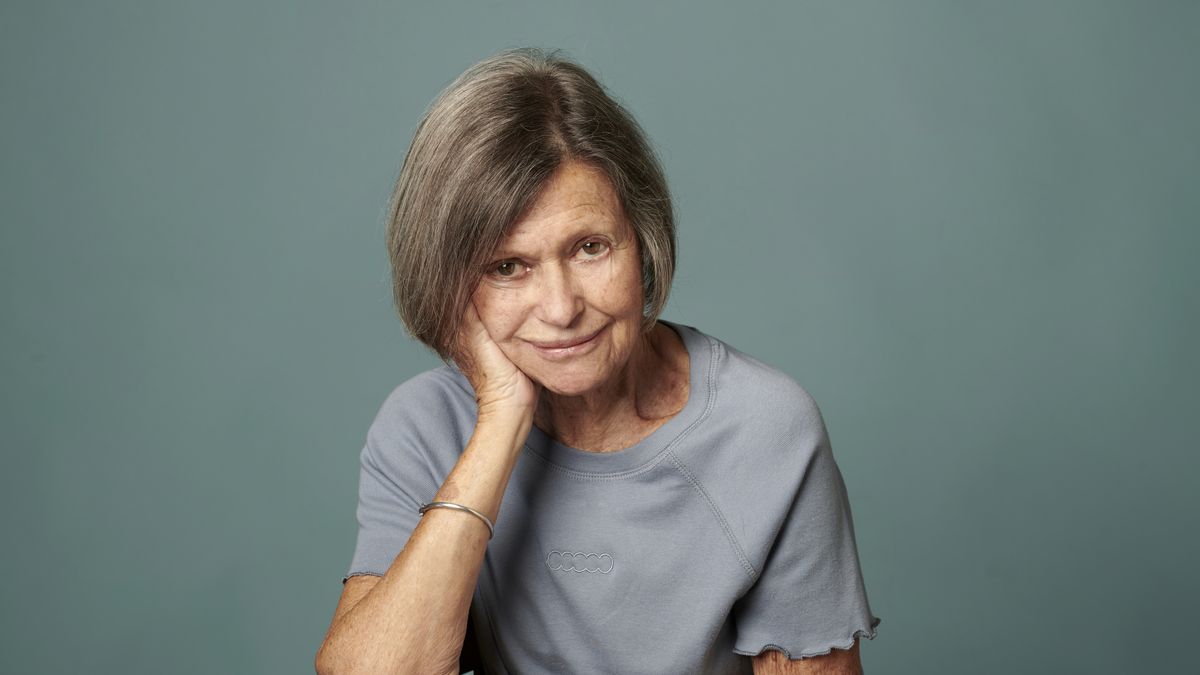Intrigued why, after a couple of resounding literary successes that gave her fame, a writer disappeared from public life, a boy and a girl decide to interview her; that makes her review and review her past in “Iceberg news” (Alfaguara) novel where Liliana Heker, at 81 years old, confirms that she is one of the great creators of Argentine letters. Heker has been chosen to inaugurate the 47th Buenos Aires International Book Fair on Thursday. We spoke with her.
Journalist: Did the 60s, sexual liberation, political commitment, the boom of Latin American literature, mark the life of Greta, the protagonist of your novel?
Liliana Heker: Being a teenager in the ’60s, Greta says, was very unique, so many things happened that one felt like a protagonist in history.
LH: I was interested in taking a character who in some ways is similar to me, but different things happen to him. My life is very marked by twenty-six years in a literary magazine, something fundamental in me and in my creation. Something that doesn’t happen to Greta. She has a different life than mine. She published only two novels, with one at the age of twenty-two she garnered praise, and with the following fame and prestige. Afterwards she went silent, did not give interviews, and renounced public life.
P.: That leads Marcos, a journalism student, and Albertina, a girl intrigued by Greta’s secret life, to interview her.
LH: And she accepts. The interview – which is not told because a novel that was an interview seemed like a shame to me – leads her to remove her story, to go to find everything that she was covering up for a long time. There are questions that she answers in part, others that she thinks, but she does not answer, and things that are never said.
Q.: Did that generational meeting, separated by half a century, allow you for crazy, humorous, nostalgic moments?
LH: The novel is riddled with humor; There are hard and moving things, but there is no nostalgia. Greta doesn’t have them because she lived her time to the hilt, so intensely that she doesn’t feel nostalgic, and she wouldn’t want to relive what she already lived.
Q: Does your novel revise and pay homage to a Hemingway theory?
LH: All of us who write stories have been fascinated by Hemingway’s iceberg theory, which is absolutely true. Thirty percent of a good story emerges, but its consistency is taken from the seventy percent that is submerged. Greta discovers something new that the iceberg tells her, hence the title “Iceberg News.” The iceberg can do other things, it is not just submerged. I knew that, it appeared to me in El Calafate, when I was writing the novel. For Greta it was a revelation. And she gave me the end of her story.
Q: Did telling the secret life of an imaginary colleague give you freedoms or restrictions?
LH: An enormous freedom. He allowed me to tell his conflicts, which are not the same as mine. What fascinated me most was telling the novels that Greta wrote, “Hilda Wangel”, “The Memory of Uma Harán” and the detained “Vera and Optimism”. that do not exist, In my book “The backroom of writing” I told the creative process of several of my short stories and my novels. Something I did a lot in the workshops I gave. It was a stimulating challenge to tell the process of other people’s works that do not exist.
Q.: Prascovia is an important character in the novel. Are cats fetishes and amulets of the writer?
LH: I love cats. And my cat Prascovia is an important protagonist in “Iceberg News”, where there is another cat, Illich, who was also a cat of mine. Today in my house, next to Prascovia, there is Brando, who does not appear in this novel. For me, and for many writers, the cat has to do with the creative process. The company of the cat is something very important for someone who writes, of course, if he loves cats.
Q.: The novel talks about the process of literary creation. Did that arise from the work in your workshops, where notable authors emerged?
LH: Today great writers, great colleagues and great friends. Greta makes specific references to Ibsen’s “Solness the Builder” and Thomas Mann’s “Confessions of the Swindler Felix Krull.” Writers who were fundamental for me as a teenager. They helped me, along with Jean-Paul Sartre, to shape my vision of the world. In the workshops do not talk about those books. I suggested authors who show ways of writing, of dialogue, of how a character’s gesture can illuminate what is happening to them. Authors who teach resources, like Salinger.
Q: Why is there more literature written by women than by men today?
L.H.: It’s something that was changing, it’s not that there was a violent change in recent years. She noticed it more and more in the workshops. The first workshop I gave was at the IFT theater during the dictatorship. Seven men and only one woman. And she was the only writer in that group, Silvia Schujer. Little by little in the workshops the number equalized. It no longer mattered whether the text was from a woman or a man but rather the quality. That began to have more and more weight. The “women’s literature” subgroup disappeared. Today there are notable authors, the genre no longer matters but the literature, they are worth it because of the books they write.
Q.: You have been chosen as a relevant personality of our culture, to give the opening speech of the Book Fair in a complex moment for books and culture…
LH: A very particular moment… and, of course, I am going to allude very clearly to the attack that is being made on the entire culture.
Q: What are you writing now?
LH: After this maelstrom, I have two projects: a book of stories and one of other kinds of narrative texts.
Source: Ambito
I am an author and journalist who has worked in the entertainment industry for over a decade. I currently work as a news editor at a major news website, and my focus is on covering the latest trends in entertainment. I also write occasional pieces for other outlets, and have authored two books about the entertainment industry.




